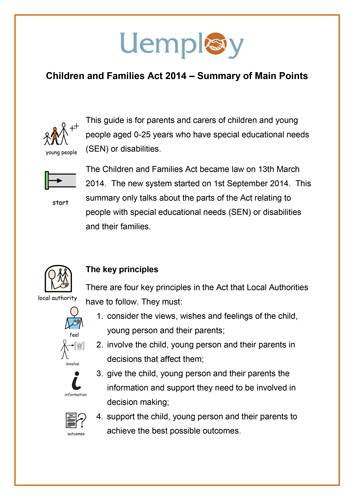Section 19 of the Children and Families Act 2014 makes clear that local authorities, in carrying out their functions under the Act in relation to disabled children and young people and those with special educational needs (SEN), must have regard to:
• the views, wishes and feelings of the child or young person, and the child’s parents
• the importance of the child or young person, and the child’s parents, participating as fully as possible in decisions, and being provided with the information and support necessary to enable participation in those decisions
• the need to support the child or young person, and the child’s parents, in order to facilitate the development of the child or young person and to help them achieve the best possible educational and other outcomes, preparing them effectively for adulthood
The Law states that;
- Young people should be at the centre of planning for and making decisions about their future. Discussions should focus on what they want to achieve, and the support they will need to get there.
- There is now a single system of support for children and young people with SEN between the ages of 0 and 25. This means that no one should lose the right to extra support for their educational needs simply because they have reached 16 or left school.
- Further education colleges and settings now have similar duties to schools to support students with SEN. Young people with SEND who need longer to complete and consolidate their education and training may have an EHCP up to their 25th birthday.
- Young people with existing statements must be prioritised for transfer to the new system.
- The law gives new rights to young people who are over 16 and no longer of compulsory school age. In the law and guidance these people are called ‘young people’.
- Young people can make decisions in their own right about the support they receive. This includes taking control of their own Education, Health and Care (EHC) plan if they are able to.

